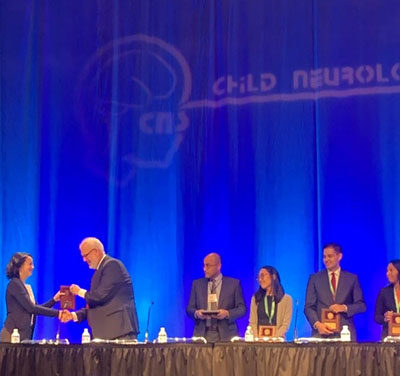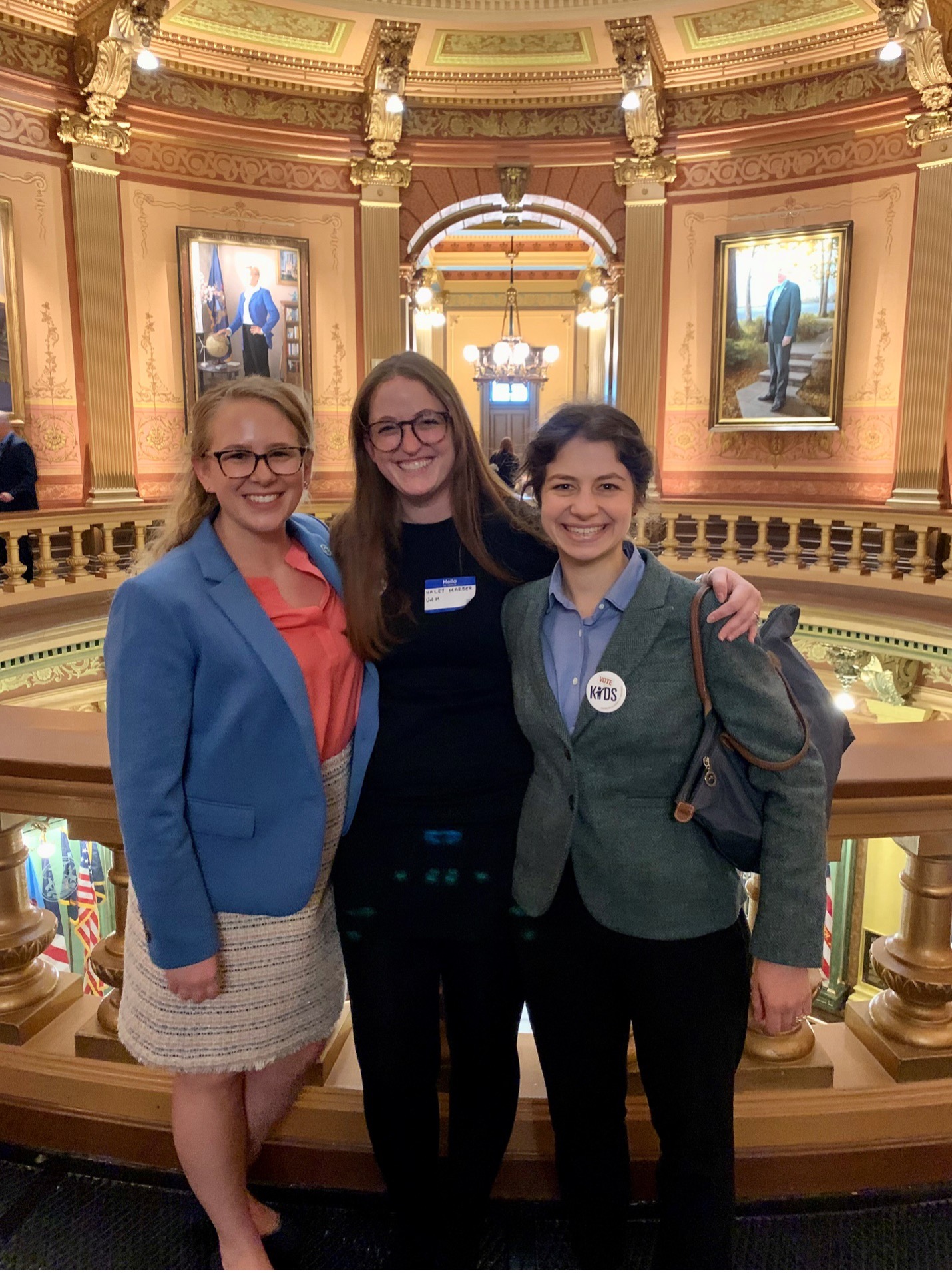- Extremely close and cooperative relationships between the Child Neurology, Pediatrics, and Adult Neurology training programs
- Child Neurology continuity clinic during the Pediatrics PGY2 year
- A month-long Neurology Bootcamp elective just before starting the PGY3 year
- Begin Child Neurology training (along with Adult Neurology training) during the PGY3 year
- Strong emphasis on graded autonomy and responsibility as residents advance and on continuity of care
- Joint teaching conferences with Neonatology, Pediatric Critical Care, Pediatric Genetics, Neuroradiology, and Social Work
Scholarship
- All residents complete a mentored capstone project and present their project at the University of Michigan Neuroscience Day
- Capstone projects include research, quality improvement, education projects, or a scholarly review
- Most residents present a project at a national meeting and many have won local and national research awards
- We have excellent integration across departments, and our residents have completed projects with Adult Neurology, Sleep Medicine, Genetics, Psychiatry, Neurosurgery, and basic science labs
- We have a world-famous pediatric health service research program, CHEAR - and child neurology residents can apply for a two-year CHEAR Fellowship
- Dr. Louis Dang, our division’s Research Director, and other members of the Resident Research Committee have recently revamped our scholarship curriculum, including didactics and roundtable discussions
- Our residents are eligible to apply for an NINDS Research Education Grant (R25) through the University of Michigan Clinical Neuroscientist Training Program, directed by Dr. Roger Albin
Quality Improvement
- Dr. Erin Fedak, our residency’s Quality Improvement Director, has created a longitudinal quality improvement curriculum for our residents
- Our residents have completed excellent quality improvement projects including these recent projects:
- Increasing folic acid prescription for patients who could become pregnant who take anti-seizure medications
- Increasing screening for mental health disorders in clinic
- Reducing unconscious bias in our resident selection process
Residents as Educators
- Our residents teach each other in a self-designed neuroanatomy series, with input and feedback from our education experts
- Division-wide meetings for faculty and residents are dedicated to educational methods and skills
- Our residents can participate in CoMET (Community of Medical Educators in Training), a program designed for residents and fellows aiming to become the next generation of clinician-educators
Global Health
- Global health electives are offered in both the Pediatric and Child Neurology residency programs, with interested faculty to assist with mentoring
- Global REACH is a university organization which facilitates worldwide clinical, educational, and research collaborations






